Interview with Claudia Rankine
P. Carl: All right! So, we’re three days into the Convening—what is the one thing that you’ve heard that you can’t stop thinking about?
Claudia Rankine: Oh my god, there have been so many things that it’s hard to lock down. The thing that I’ve heard is not really a sentence, it’s a concept, it’s the way in which so much of the conference is about cross-pollination and collaboration and ways to foster that both in the community and between theaters and writers and actors, and writers and theaters. I think it feels like no matter what we’re talking about, we’re talking about a mode of connection and ways of keeping those connections going.
Carl: I think that’s terrific—I know that as a poet your perspective is different from a theater practitioner, but we’ve been talking about this issue of Scarcity versus Abundance. Scarcity is, of course, something we feel very familiar with in this economy, but more importantly, familiar with in the arts. In this convening we’ve identified “bright spots” to locate abundance in the field. Where do you come down on the question of scarcity or abundance?
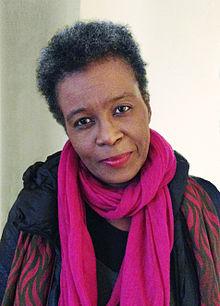
Everybody is doing incredible things, so the question becomes how does everybody else know that everyone is doing “X” thing and then how can those things help “Y” person further their own endeavors
Claudia: Because my connection to the theater community has been as an audience member primarily, and then I had the opportunity to write for the Foundry Theatre, it’s interesting to listen to this notion of scarcity when as an audience member I’ve always felt like the theater is just so expensive and so privileged. It’s like the golf of the arts, you know, where it’s almost impossible to have it be sort of an active part of your life, in terms of a financial commitment. Here, I really feel like you have all these people from all around the country engaged in this practice and yet their own endeavors remain private. And it seems—there are many ways of understanding the word “abundance”— but I really feel like it’s about talking about how to get what is abundant in a private way out and public, and less about scarcity. I know that this has been a part of our discussion of “bright spots.” From the outsider listening it seems like everybody is doing incredible things, so the question becomes how does everybody else know that everyone is doing “X” thing and then how can those things help “Y” person further their own endeavors.
Carl: And this is just a little tag onto that question because I’m curious—collaboration isn’t essential to making poetry like it is in theater. What is it like as a poet to enter the collaborative world of theater? Is that one of the things that’s drawn you to work with somebody like Melanie Joseph and The Foundry?
Claudia: Writing poetry is a singular activity. I feel my work is very inter-textual and I’m very interested in collaborations with text but those are sort of dead things. What’s exciting to me and difficult is the way in which theater relies on so many different people doing what they do. And it’s fabulous. And it makes you love the idea of capacity and capability. I just came out of rehearsal for the Rude Mechs show, and I know those people individually, but to see the product, to see what they put together, is stunning, it’s sort of awesome.
Carl: That’s the part of theater that blows my mind, when all those little pieces and parts just come together, and usually in theater at the very last second, when you think there’s no way it can be pulled off and you get in front of an audience and—
Claudia: —there it is.
Carl: There it is. I had an interesting conversation in a breakout session yesterday about what is it that institutions have to learn from artists? And I want to contextualize it in a semi-long question. We were talking about bringing artists more fully into institutions to be artists, not necessarily administrators.
I was saying that my partner Lynette had written an essay about waiting and sent it to me yesterday morning in the midst of this conversation. In it she was saying how she loved to wait, and how she loved to be stuck in traffic, and I was thinking about that and thinking how of course this makes us not similar at all, and how much I’ve learned from living with a writer who has such a different way of seeing and being in the world. If we brought the concept of waiting for example into an institution, how might they change? So I just wonder what is your sense of what we have to learn from artists, and what is it that institutions actually might learn from the artistic process?
Claudia: I teach writing at Pomona College, and the older I get the more I feel my, I shouldn’t say duty, but my role as a writer and teacher has to do with process. And there’s a way in which artists are engaged in the world and able to track that engagement which in a way is connected to this idea of waiting, right? And I think nowhere else do you see the articulation of the tracking of engagement as in the work of artists, and so I think that is a sort of infinite patience with one’s place in the world.
Carl: I think about that and I think how different a university would look if that was one of the things that helped shape the foundation of how we interacted.
Claudia: Exactly.
Carl: Right?
Claudia: It’s almost like teaching people to be collaborative with themselves, in a sense, to understand how much goes into each step that you take, by throwing back out the vision of what that looks like.
Carl: I love that, I mean, I’m answering my own questions now, but just to think about that whole issue of how we would change if artists drove the agenda of the “how” within institutions.
Claudia: I think that it would take a long time to get things done, so not much would get done, right?
Carl: One last question, purely selfish on my part. I saw Provenance of Beauty last night and as I said to you earlier, was completely moved by it. I have been thinking a lot about this question of beauty and the line that has stayed with me is, “beauty is produced by sustained contradiction.”
With a project like Provenance of Beauty, where you take things that are not beautiful, such as sewage plants, prisons—would you meditate on how you thought through the juxtaposition or disparity between the sewage plant and the beautiful words you were putting to those images and the beautiful people that are walking around that community?
Claudia: I think that if the question is how you move into a community, and the community is thriving, and there are people there who are the best of people because they have had to negotiate many things that a lot of people don’t have to negotiate in order to live their lives, and so you want to—I wanted to, Melanie wanted to—honor that. But you don’t want to lie. You don’t want to say this place is not filled with garbage dumps and recycling and electricity plants and all kinds of stuff that is not within one’s normal frame of what is beautiful and what is healthy and what is safe. And so the difficulty was negotiating being true to the facts and honoring the lives that have negotiated those facts. So that was really the job of writing that piece.
Carl: That kind of gives me chills, and the fact that that negotiation is a series of contradictions.
Claudia: Exactly. And paradox.
Carl: And paradox, yes.


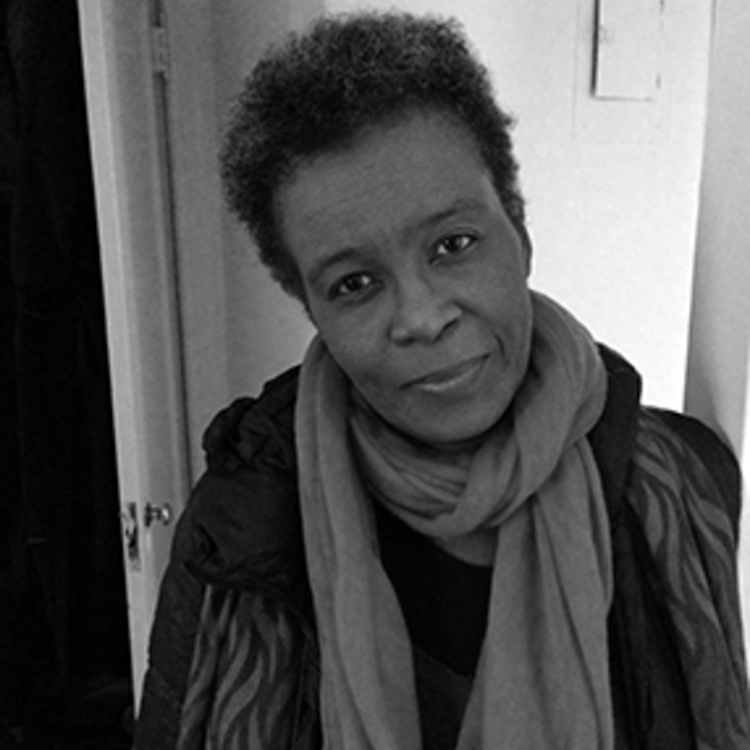

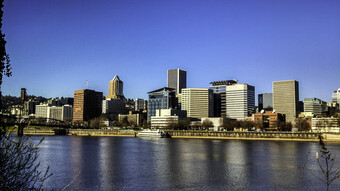


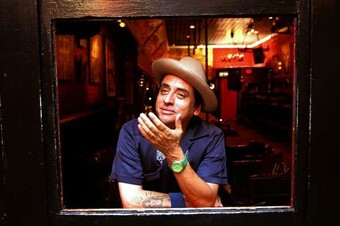


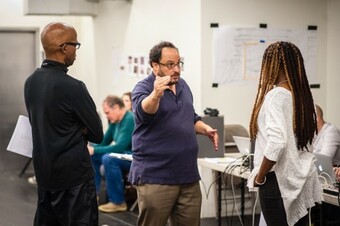

Comments
The article is just the start of the conversation—we want to know what you think about this subject, too! HowlRound is a space for knowledge-sharing, and we welcome spirited, thoughtful, and on-topic dialogue. Find our full comments policy here